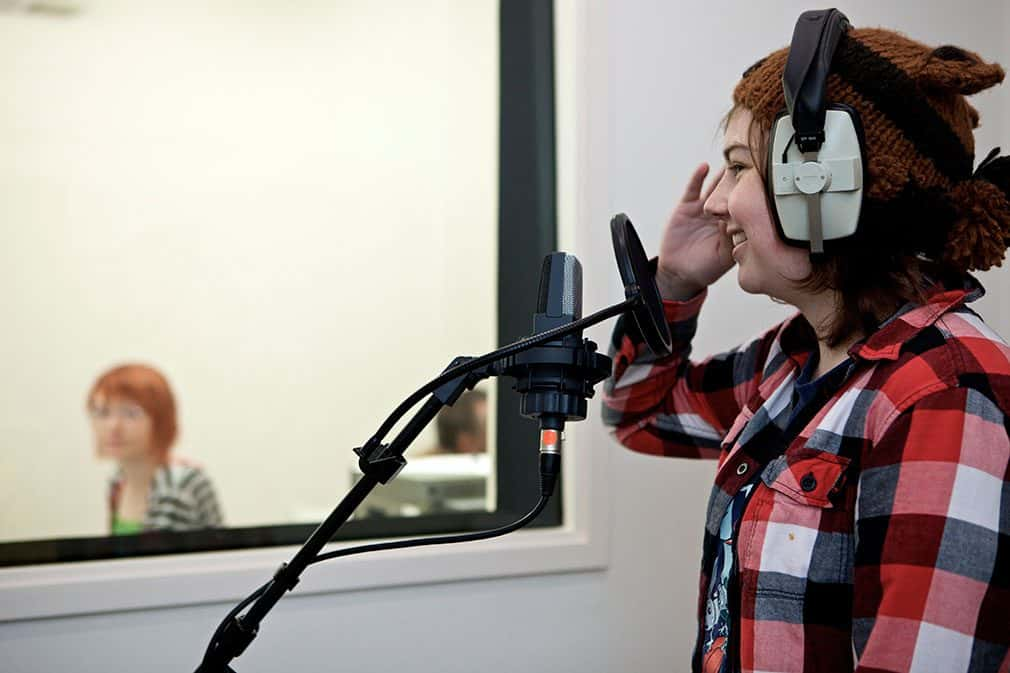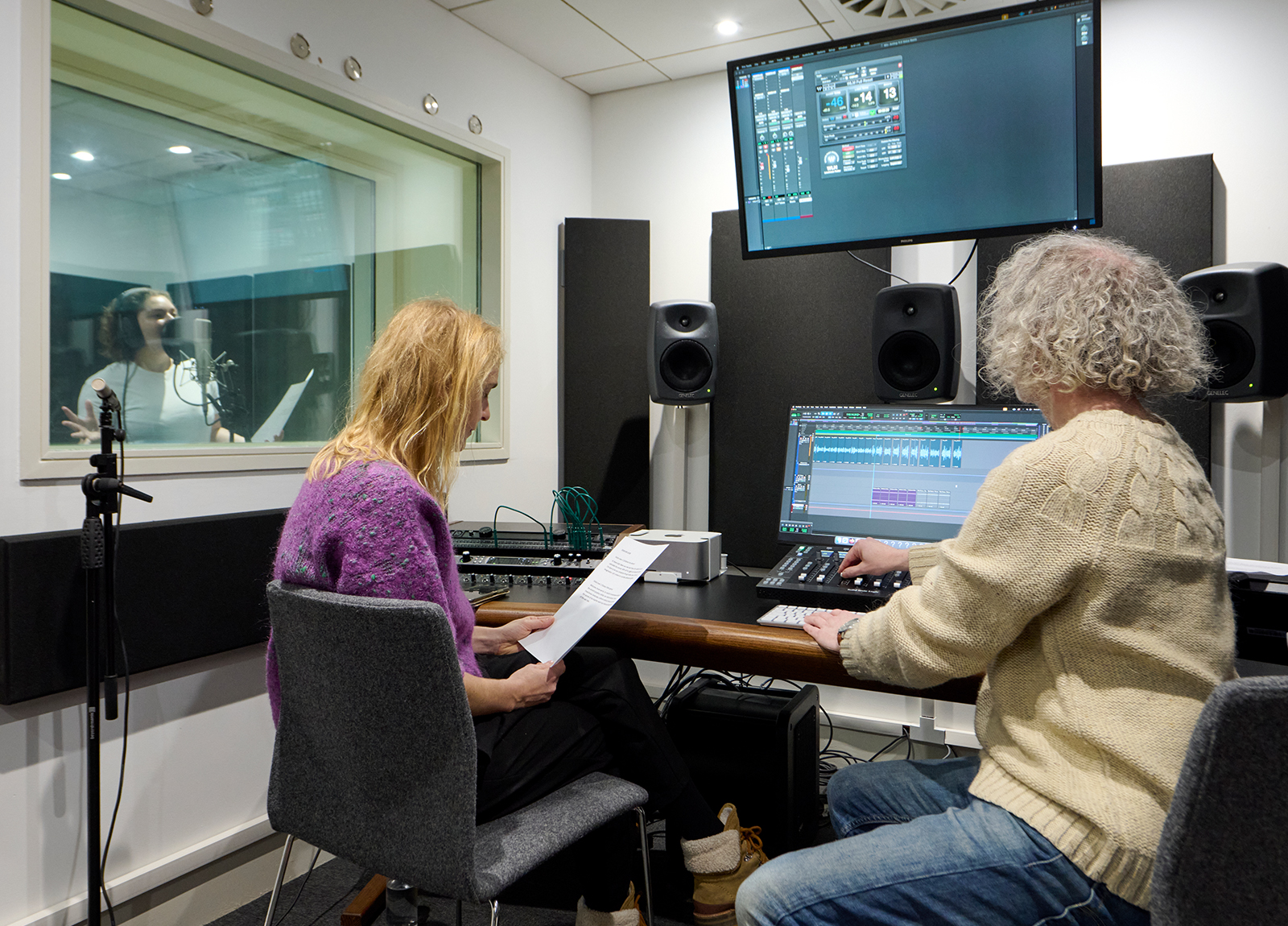
Electronic Music and Sound Production BA (Hons)
Explore how electronic music and sound production can elevate screen experiences, enhance fine art, and redefine immersive installations.
-
Course Duration
3 Years
-
Course Options
Diploma Year
-
Typical Offer
104-120 UCAS Tariff Points
- How to Apply Request a prospectus
-
Annual Fees
- Home (full-time) £9,790
- Overseas (full-time) £18,860
-
UCAS code
- MUS1
- Institution code: N39
-
Course Start
September 2026
Our BA (Hons) Electronic Music and Sound Production course is designed to provide a comprehensive understanding of contemporary electronic composition and sound design, preparing you with the critical and industry knowledge to shape sound for a wide range of media, from film and games to gallery spaces and live performances.
Through a solid foundation in composition, sound editing, mixing, synthesis, and media workflows, you’ll develop expertise across both established and emerging technologies in our world-class labs. You’ll explore the unique demands of sound design for Film, High-End TV, Games, and Immersive spaces, as well as for traditional live and recorded music. With a theory-driven approach, you’ll gain insight into electronic music’s historical and contemporary influences, discovering its cultural impact and shaping your bold, experimental visions for the future.
Why study with us
-
Explore multiple disciplinary backgrounds and immerse yourself in a world of sonic exploration, design and production.
-
Explore sound as a creative medium in your chosen area of interest.
-
Work with traditional field recording and studio sound recording.
-
Develop, define and hone your unique creative and technical skills in composition, performance, production, audio and sound design for live performances/events, music/sound for computer games and film production.
-
Learn to compose, mix and master sound for stereo, 5.1 and Dolby Atmos playback.
Course Details
Year 1
Core Units
Creative Learning (40 credits)
This unit will focus on developing your fundamental skills in sound recording in the studio and on location. Through hands-on sessions, students will learn the fundamentals of music theory, sound creation, field recording, and editing techniques using industry-standard tools like Pro Tools and Ableton Live. This unit offers a comprehensive foundation, blending technical and critical skills, to prepare students for their further study and work in the evolving landscape of electronic music and sound. Group critiques and listening exercises will sharpen your feedback and evaluation skills, while seminars in sound theory and reflective learning will build a deeper understanding of music’s role within cultural contexts.
40 credits
Explore and Experiment (80 credits)
In this unit, you will explore and experiment with a wide range of techniques, materials, and media. You will explore the intricacies of sound and music for film, electronic composition, and advanced audio methods. You’ll engage with film sound workflows—such as location sound, foley, ADR, and SFX design—and develop expertise in composition techniques, including synthesis, sound editing, and 5.1 mixing. Hands-on workshops in Pro Tools and Ableton Live will enhance your digital audio workstation skills, with a focus on MIDI integration and intermediate production techniques. Lectures will deepen your understanding of ethical representation and diversity in electronic music and sound production, exploring socially engaged and sustainable practices across historical and contemporary contexts.
80 credits
Core Projects
Wayfinding Week
The first week of each academic year is called Wayfinding week. It’s an opportunity get your bearings, establish new connections and, after your first year at Norwich, re-establish old ones. Your course team will talk you through the year ahead and explain the expectations for the year. We’ll help you navigate new encounters and identify areas to focus on as you progress through your course.
Make it Manifest(o)
An important element of Wayfinding Week is taking part in our annual ‘Make it Manifest(o)’ project. Your course team will introduce the project in which we’ll ask you to consider your hopes and vision of the year ahead at Norwich and work with students in other year groups to bring your ideas to life. The project culminates in a celebratory display of work across the campus. The project will help you to develop your critical creativity through different approaches, concepts, and mediums. You’ll encounter diverse perspectives and build friendships and networks within our university community.
Interchange Week
Interchange weeks are opportunities to step away from your disciplinary studies and engage in projects, workshops, visits and talks that extend your knowledge and understanding of the world. Whether you learn a new skill or take part in a global challenge project with students from other courses, you will come away with new insights to take back to your course. Interchange is part of the schedule for all Norwich students with sessions held across and beyond the campus led by university staff, visiting lecturers and students.
Year 2
Core Units
Global Contexts (80 credits)
This unit will enable you to expand your specialist knowledge and skills and help you to identify areas for personal development. You will learn to apply your skills and knowledge to cutting-edge immersive spaces and develop sound designs and compositions tailored for those interested in sound environments, interactive media, and creative installations. Through practical workshops, you will learn to create and diffuse sound in immersive spaces, using tools like WWise, Unreal Engine, Dolby Atmos, and MAX/MSP. Emphasis is placed on hardware hacking, microcontrollers, and sensors, empowering you to design sound work for varied contexts such as games, film, and gallery spaces. With a strong focus on personal and professional growth, you’ll gain valuable insight into creative risk, well-being, and safe practices and exhibit your sound installations in a group gallery show, ensuring real-world experience in sound art presentation.
80 credits
Collaboration (40 credits)
This unit focuses on helping you to understand your practice in a wider context through collaboration and interdisciplinary working, with the opportunity to test different working practices. Students will develop the skills needed for collaborative, interdisciplinary audio and visual production, focusing on live sound, realtime generative music, improvisation, and sonic branding. Through hands-on workshops and collaborative projects, students will engage in professional practices across three briefs: a group performance event, a sonic branding client project, and an audio-visual collaboration. Students will learn about event planning, production, and team management, enabling you to apply your knowledge and skills to a broad range of contemporary industry and cultural practices.
40 credits
Core Projects
Wayfinding Week
The first week of each academic year is called Wayfinding week. It’s an opportunity get your bearings, establish new connections and, after your first year at Norwich, re-establish old ones. Your course team will talk you through the year ahead and explain the expectations for the year. We’ll help you navigate new encounters and identify areas to focus on as you progress through your course.
Make it Manifest(o)
An important element of Wayfinding Week is taking part in our annual ‘Make it Manifest(o)’ project. Your course team will introduce the project in which we’ll ask you to consider your hopes and vision of the year ahead at Norwich and work with students in other year groups to bring your ideas to life. The project culminates in a celebratory display of work across the campus. The project will help you to develop your critical creativity through different approaches, concepts, and mediums. You’ll encounter diverse perspectives and build friendships and networks within our university community.
Interchange Week
Interchange weeks are opportunities to step away from your disciplinary studies and engage in projects, workshops, visits and talks that extend your knowledge and understanding of the world. Whether you learn a new skill or take part in a global challenge project with students from other courses, you will come away with new insights to take back to your course. Interchange is part of the schedule for all Norwich students with sessions held across and beyond the campus led by university staff, visiting lecturers and students.
Diploma Year (optional)
Level 5 Diploma (120 credits)
Students have the opportunity to spend a year after the second of their degree (or the third year if studying for a degree with an Integrated Foundation Year) enhancing their employability options through a Level 5 Diploma. They can choose from courses designed to provide:
- opportunities to gain industry insight, developing employability skills through a series of supported experiences, expanding professional networks and building confidence in the workplace, or
- an introduction to creative computing, building an understanding of how coding skills can be used to advance and complement creative practice.
Final Year
Core Units
Research and Preparation (40 credits)
This is the first and shorter of the two units that make up your final year of undergraduate study. You will participate in a diverse range of weekly teaching events designed to enhance your experimental practice in Electronic Music and Sound. Advanced workshops, including Electronic Music and Sound Design Masterclasses, will encourage experimentation with new technologies and materials. Working from your research report proposal, you will enhance your critical thinking through research, analysis, and critical writing of an in-depth research report related to electronic music and sound, technology, industry, culture, or audiences that reflect your interests. At the end of the unit, you will submit a final project proposal that outlines a detailed plan for your specialist major project in your final unit of study.
40 credits
Resolution and Career Development (80 credits)
Your final unit allows you to resolve your creative practice, working from the project proposal developed in the previous unit. This could include wide and diverse possibilities from recorded compositions to Realtime improvisation, multichannel sound arts, and immersive sound experiences. You may choose to specialize in film sound or design the sound and music for a game. Opportunities to collaborate with peers on a wider range of courses will enable you to operate in any context, creating many potential spaces or niches for your electronic music compositions and sound design practices. This unit prepares you for a career after graduation, with support to develop a five-year employability plan, including seeking industry placements, internships, mentors, and employment, and building your final film for festival submission.
80 credits
Core Projects
Wayfinding Week
The first week of each academic year is called Wayfinding week. It’s an opportunity get your bearings, establish new connections and, after your first year at Norwich, re-establish old ones. Your course team will talk you through the year ahead and explain the expectations for the year. We’ll help you navigate new encounters and identify areas to focus on as you progress through your course.
Make it Manifest(o)
An important element of Wayfinding Week is taking part in our annual ‘Make it Manifest(o)’ project. Your course team will introduce the project in which we’ll ask you to consider your hopes and vision of the year ahead at Norwich and work with students in other year groups to bring your ideas to life. The project culminates in a celebratory display of work across the campus. The project will help you to develop your critical creativity through different approaches, concepts, and mediums. You’ll encounter diverse perspectives and build friendships and networks within our university community.
Interchange Week
Interchange weeks are opportunities to step away from your disciplinary studies and engage in projects, workshops, visits and talks that extend your knowledge and understanding of the world. Whether you learn a new skill or take part in a global challenge project with students from other courses, you will come away with new insights to take back to your course. Interchange is part of the schedule for all Norwich students with sessions held across and beyond the campus led by university staff, visiting lecturers and students.
Download course specifications
Learning and teaching
This course is taught through a mixture of learning and teaching methods including:
-
Group briefings
-
Academic tutorials
-
Group tutorials
-
Workshops
-
Critiques (crits)
-
Seminars
-
Lectures
Assessment
Assessment for this course is entirely coursework-based, meaning there are no exams. Your progress will be evaluated through the projects and assignments you complete for each unit. Throughout the year, you’ll receive ongoing feedback to help you refine your work and develop your skills. To support your learning and ensure you achieve the course outcomes, we use a variety of assessment methods, including:
- Finished pieces of work
- Presentations
- Written work
- Your research
- A reflective journal
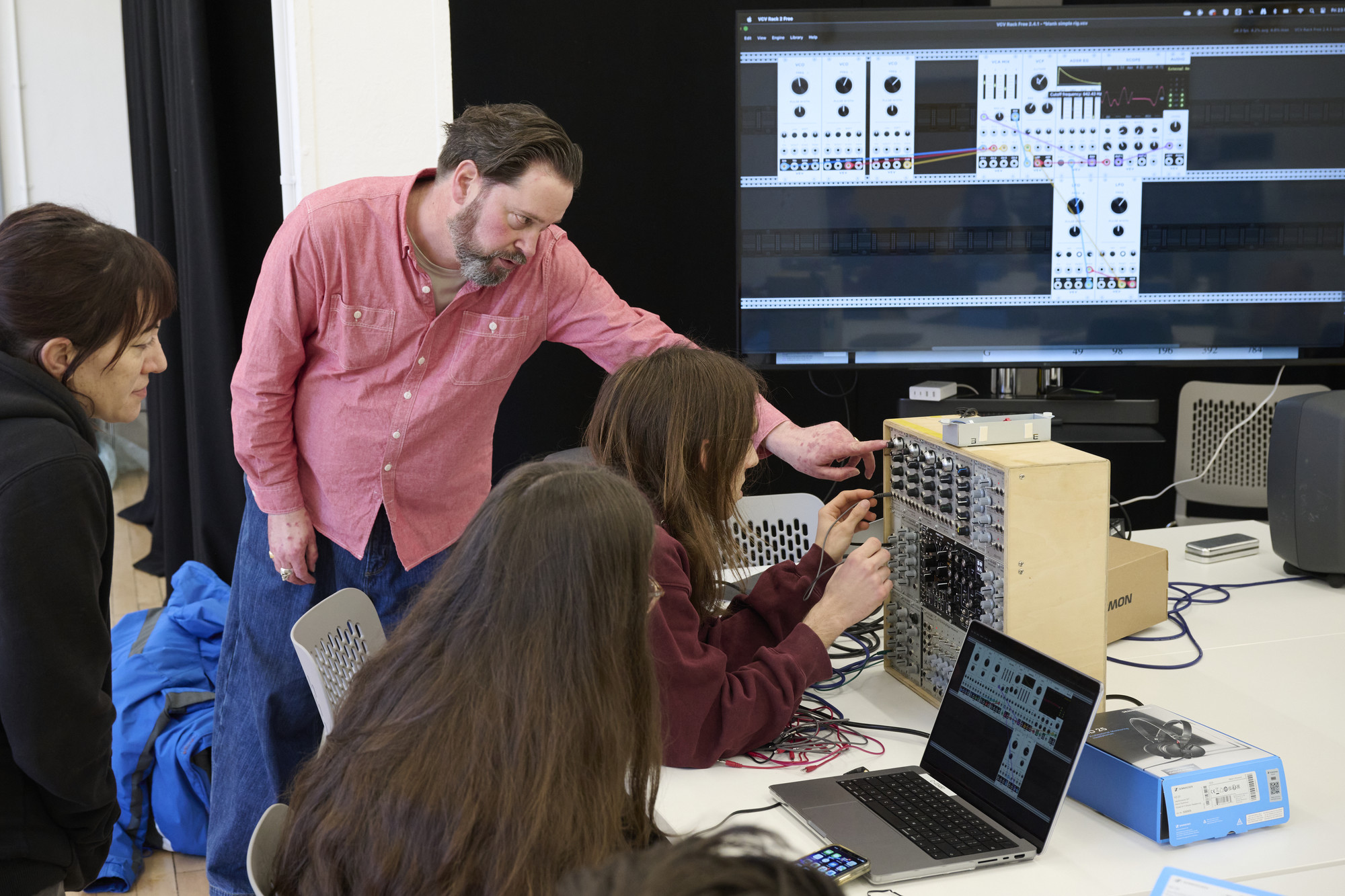
Typical career paths
Our Electronic Music and Sound Production degree will equip you with valuable subject knowledge, cultural and social awareness, and a strong balance of musical, technological and transferrable skills. You’ll develop the skills and knowledge necessary to pursue a successful career in the creative industries, including those centred around digital music, film, TV live events and computer games.
- Music producer
- Composer
- Games producer
- Sound designer
- Audio technician
- Sound engineer
- Studio manager
- Artist/performer
“92% of our graduates are in employment or further education within six months of graduating”
Graduate Outcomes 2021
Entry requirements
Home
Norwich University of the Arts welcomes applicants of all ages from all backgrounds.
If the qualification that you are studying is not shown, do not worry as we are able to accept other pre-entry qualifications as well as combinations of different qualifications.
A/AS Levels (GCE)
GCE A/AS Levels 3 A-level qualifications at grades BCC (104 UCAS Tariff points) or above. Where candidates are not taking 3 A-levels, Norwich University of the Arts will consider combinations of A-level/AS-level and other Level 3 qualifications.
BTEC Extended Diploma (QCF or RQF)
Distinction, Merit, Merit in an art, design or media related subject
BTEC Diploma (QCF or RQF)
Distinction*, Distinction* in an art, design or media related subject
T Levels
A T Level in any subject with overall grade A* to C (Pass)
UAL Extended Diploma
Merit
UAL Level 3 Foundation Diploma in Art and Design
Pass
UAL Level 4 Foundation Diploma in Art and Design
Pass
Foundation Diploma in Art and Design
Pass
Access to Higher Education Diploma (Art and Design)
Pass
International Baccalaureate Diploma
A minimum of 26 points
Overseas
We accept qualifications from all over the world.
To find our entry requirements from a specific country, please check our dedicated international pages.
English language qualifications
Most international students are required to hold an English language qualification. Applicants are required to have a minimum UKVI approved IELTS exam score of 6.0 overall, with a minimum of 5.5 in each section. Equivalent English language qualifications are acceptable such as, IB English language syllabus A or B/English Literature (Grade 4).
We also accept some alternative English qualifications. Learn more about our English entry requirements.
You can email us on international@norwichuni.ac.uk if you’d like to discuss your application individually.
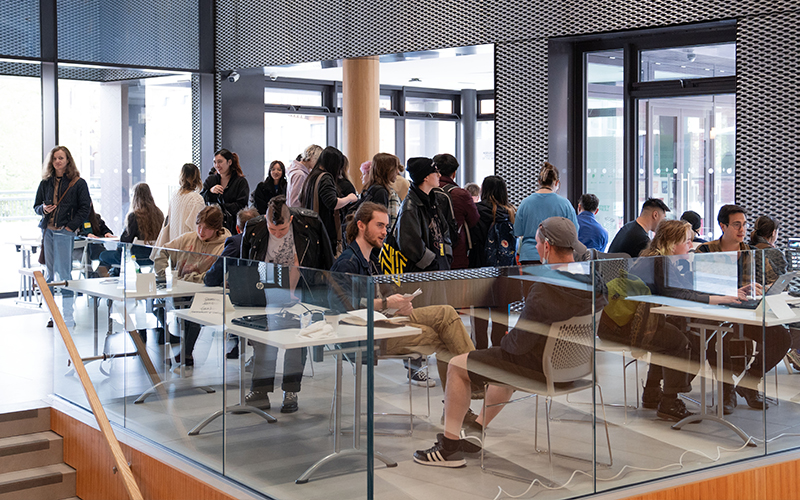
Fees and funding
Home
Tuition fees for the 2026/27 academic year
- BA course (three year): £9,790 per year
- Level 5 Diploma Year (optional): £9,790 year
The level of fee that you will be asked to pay depends on whether you’re classed as a UK (home) or international student. Check your fee status.
Fees for subsequent years
Tuition fees may increase in subsequent years in line with inflation, subject to government regulations. The inflation rate used is expected to be the Retail Price Index excluding mortgage payments (RPIX). We would confirm this in advance to you of each academic year.
Find our more about fees and funding
Funding your study
Depending on your circumstances, you may qualify for a bursary, scholarship or loan to help fund your study and enhance your learning experience.
International
Tuition fees that for the 2026/27 academic year
- BA course (three year): £18,860
- level 5 Diploma year (optional): £18,860
The level of fee that you will be asked to pay depends on whether you’re classed as a UK (home) or international student. Check your fee status.
Fees for subsequent years
For Overseas students starting in 2026 inflation will be applied to your fees in later years. We will confirm this in advance to you of each academic year, and we will limit the increase to no more than the Office for Students’ recommended inflationary measure.
Find our more about fees and funding
Funding your study
Please take a look at our International students page for information about fees, scholarships for international students, visas and much more.
Additional costs
Your course fees cover the cost of studies, and include loads of benefits, such as the use of our library, support from our expert employability team, access to workshops and free use of the IT equipment across our campuses. There are also other costs which you may need to consider.
How to apply
Home
All applications for undergraduate courses will need to be made via the Universities and Colleges Admissions Service (UCAS).
You’ll need our university UCAS code (N39) as well as your course code which you’ll find on your course page.
When you register with UCAS you will need include your previous and current qualifications information, personal statement, and reference.
Once we receive your application form through UCAS, we will email confirmation that we have received it and will give you access and instructions for logging into the applicant portal. Our decision will be communicated via UCAS.
Applying for an undergraduate degreeInternational
Full-time Undergraduate International applicants can either apply via UCAS or directly by completing the online application form below or emailing the downloadable form to ioadmissions@norwichuni.ac.uk
Online Application Form (opens in a new window)For further support for international applicants applying for an undergraduate degree view our international pages.

Latest news
-
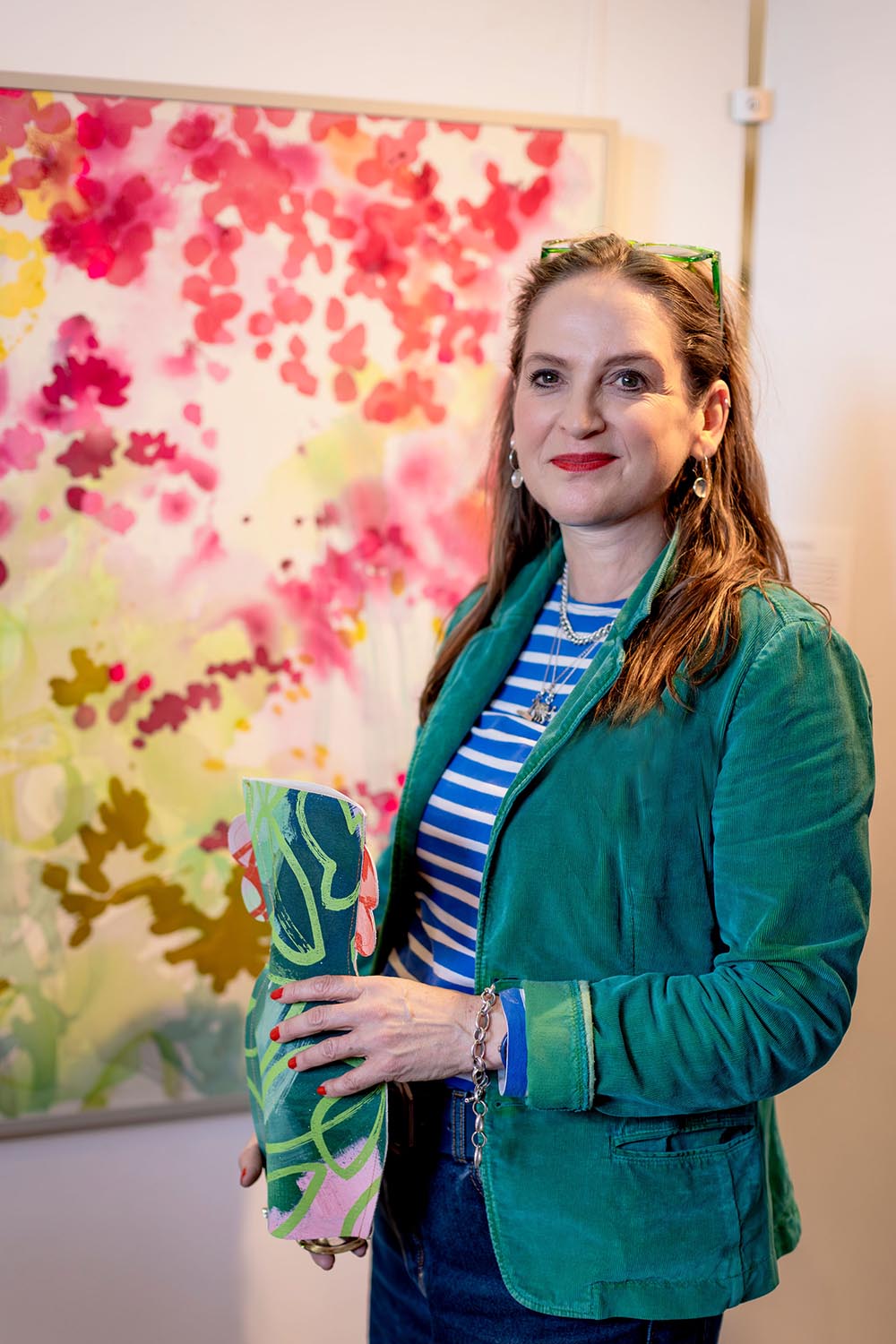 BA Textile Design •
BA Textile Design •In conversation with: Lucy Perry, MA Textile Design
Lucy shares her experience of creating a 360° digital installation, in a collaborative exploration of nature and technology. -
 Institution •
Institution •Norwich University of the Arts earns prestigious 5-star QS Star Excellence rating fo Teaching
Norwich University of the Arts has been awarded an overall four-star rating in the prestigious QS Stars University Ratings, marking a significant milestone in the University’s first-ever submission to the internationally recognised assessment framework. -
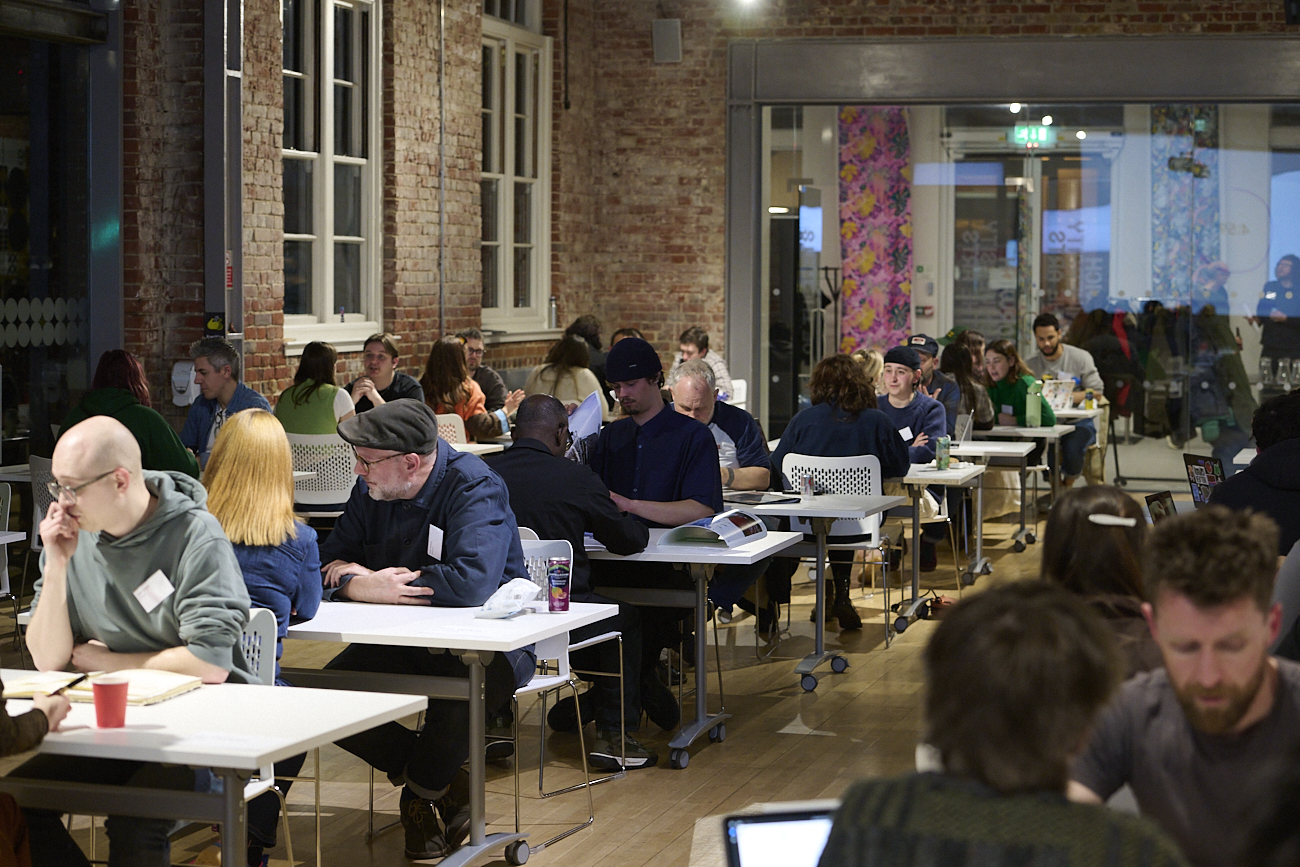 Employability •
Employability •Norwich University of the Arts celebrates 10 years of the Big Book Crit
Hundreds of Norwich students have shared their work with leading creative professionals over the last decade. -
 East Gallery •
East Gallery •Announcing the East Gallery Fellows 2025-2026
Norwich University of the Arts is pleased to announce the selected awardees of this year's East Gallery Fellowship. -
 BA Business Management •
BA Business Management •Dean of Creative Education Awarded Prestigious Principal Fellowship from Advance HE
The University is delighted to announce that Hilary Carlisle, Dean of Creative Education and Professor of Design, has been awarded Principal Fellowship of the Higher Education Academy (PFHEA) by Advance HE -
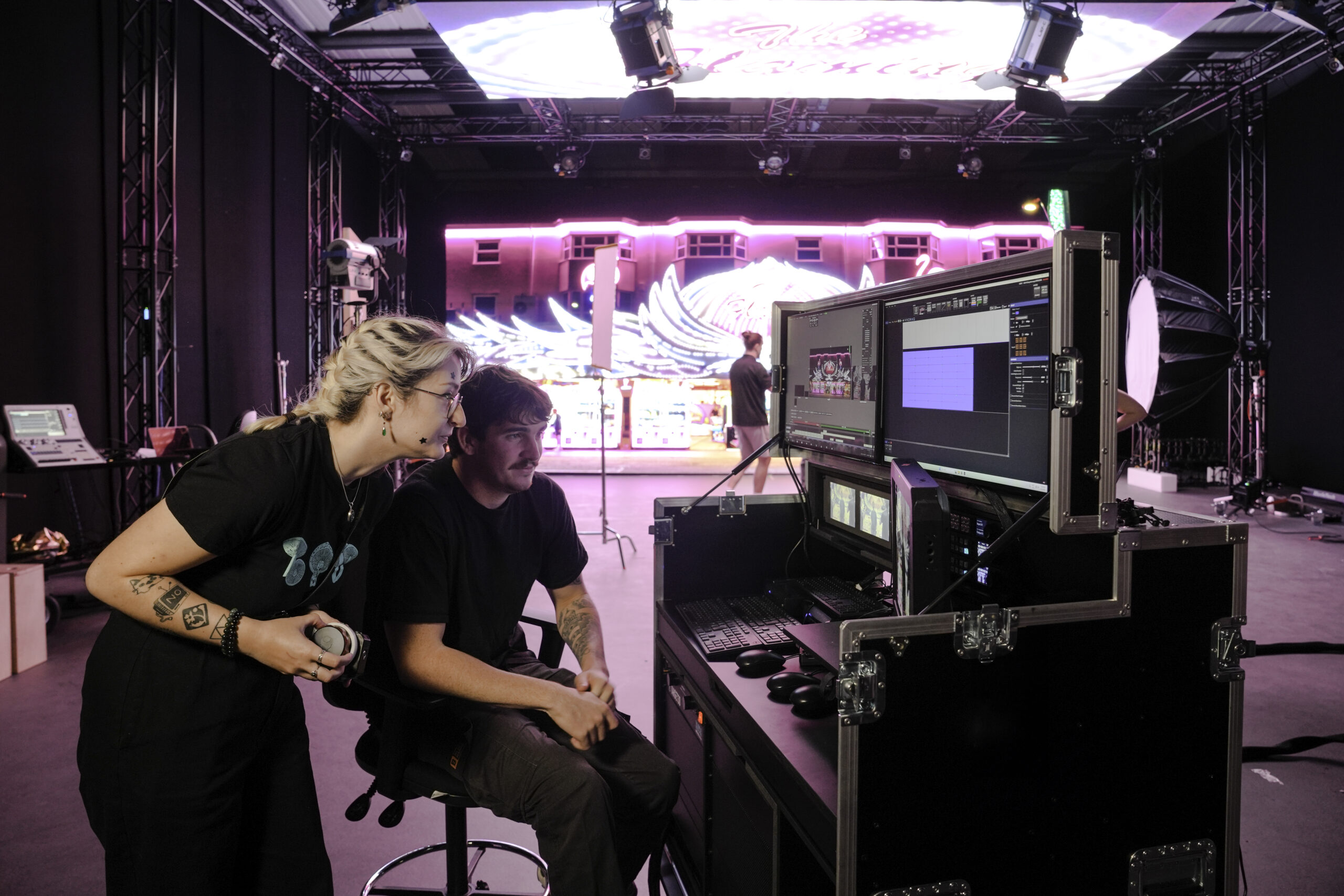 BA Degree •
BA Degree •Norwich University of the Arts to Host ELIA Academy 2027
Norwich University of the Arts is delighted to announce that it has been selected as the host institution for the ELIA Academy 2027. -
 BA Business Management •
BA Business Management •In conversation with Norwich’s newest lecturers in Marketing and Business Management
We joined Norwich's newest lecturers, Stephen Balmer-Walters and Laurie McAllister, to find out more about the University's Marketing and Business Management courses. -
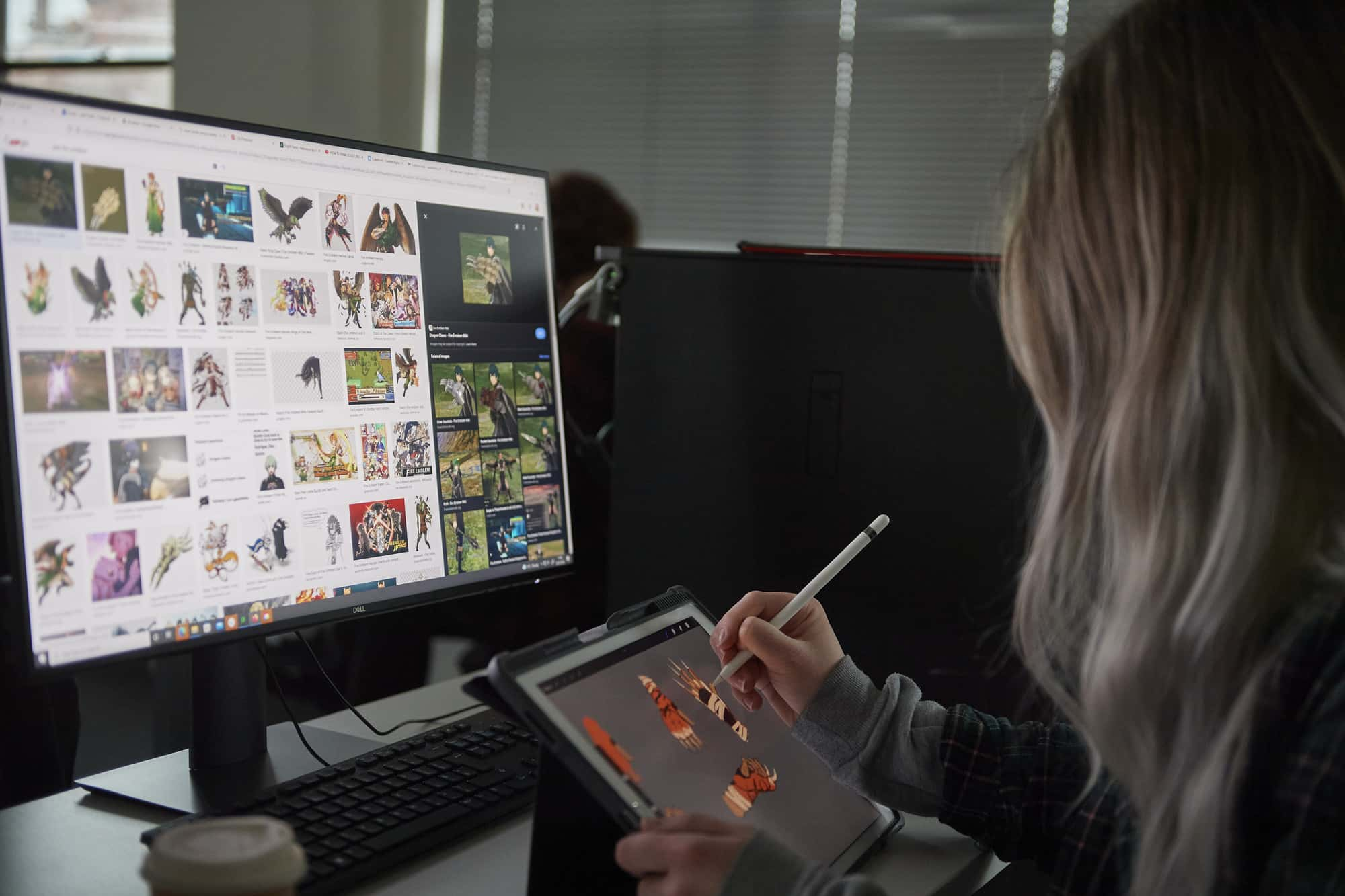 BA Games Art and Design •
BA Games Art and Design •East of England set to become UK’s next Games Cluster, says landmark report
A major new report is calling for the creation of a Games Cluster for the East of England — positioning the region as a national leader in creative technology and immersive media. -
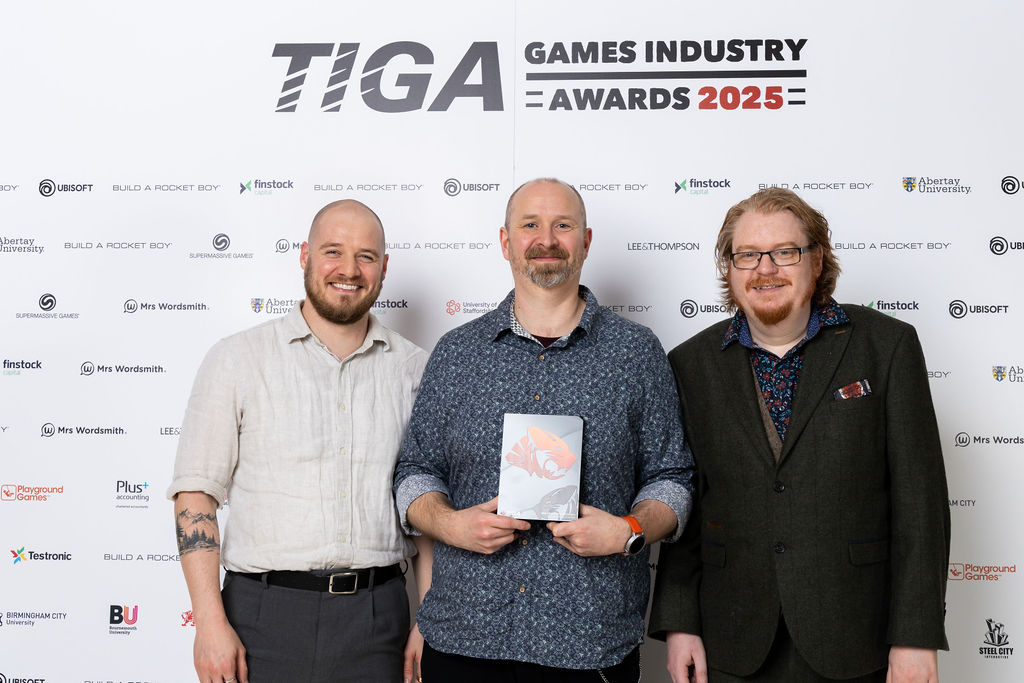 BA Games Art and Design •
BA Games Art and Design •Norwich awarded Best Education Initiative at the TIGA UK Games Industry Awards
TIGA, who represent the UK video games industry, have recognised the University’s commitment to graduate success and industry-focused learning in their 2025 awards. -
 BA Animation •
BA Animation •Cutting edge Sony Virtual Production Studio puts Norwich on the map for the future of film and gaming
Norwich University of the Arts and Sony open new landmark facility for students, creators and the community. -
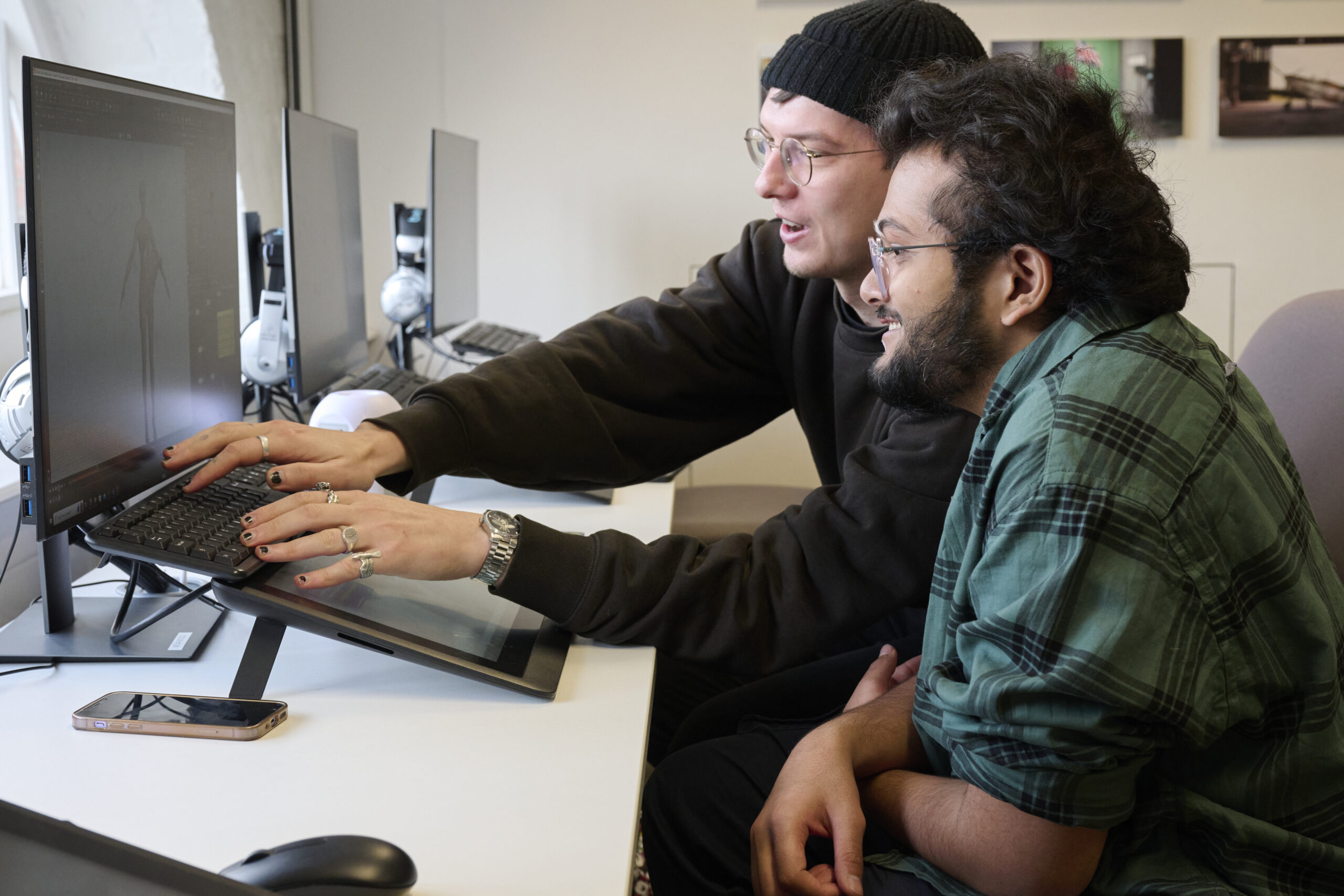 BA Animation •
BA Animation •Norwich named top UK university for production excellence in visual effects
The University has been placed in three categories in the 2025 Rookies Global School Rankings, including the top five for Production Excellence – Visual Effects. -
 BA Photography •
BA Photography •Entries open for Norwich's 2026 Beyond the Frame photography competition
Entries are now open for our annual photography competition, open to students aged 11 to 19 around the world. -
 BSc Degree •
BSc Degree •Norwich University welcomes new academics to its Psychology and Computer Science courses
Lyndsey Wallace joins the University as Senior Lecturer for BSc (Hons) Psychology, with Jawwad Chattha joining as Course Leader for BSc (Hons) Computer Science. -
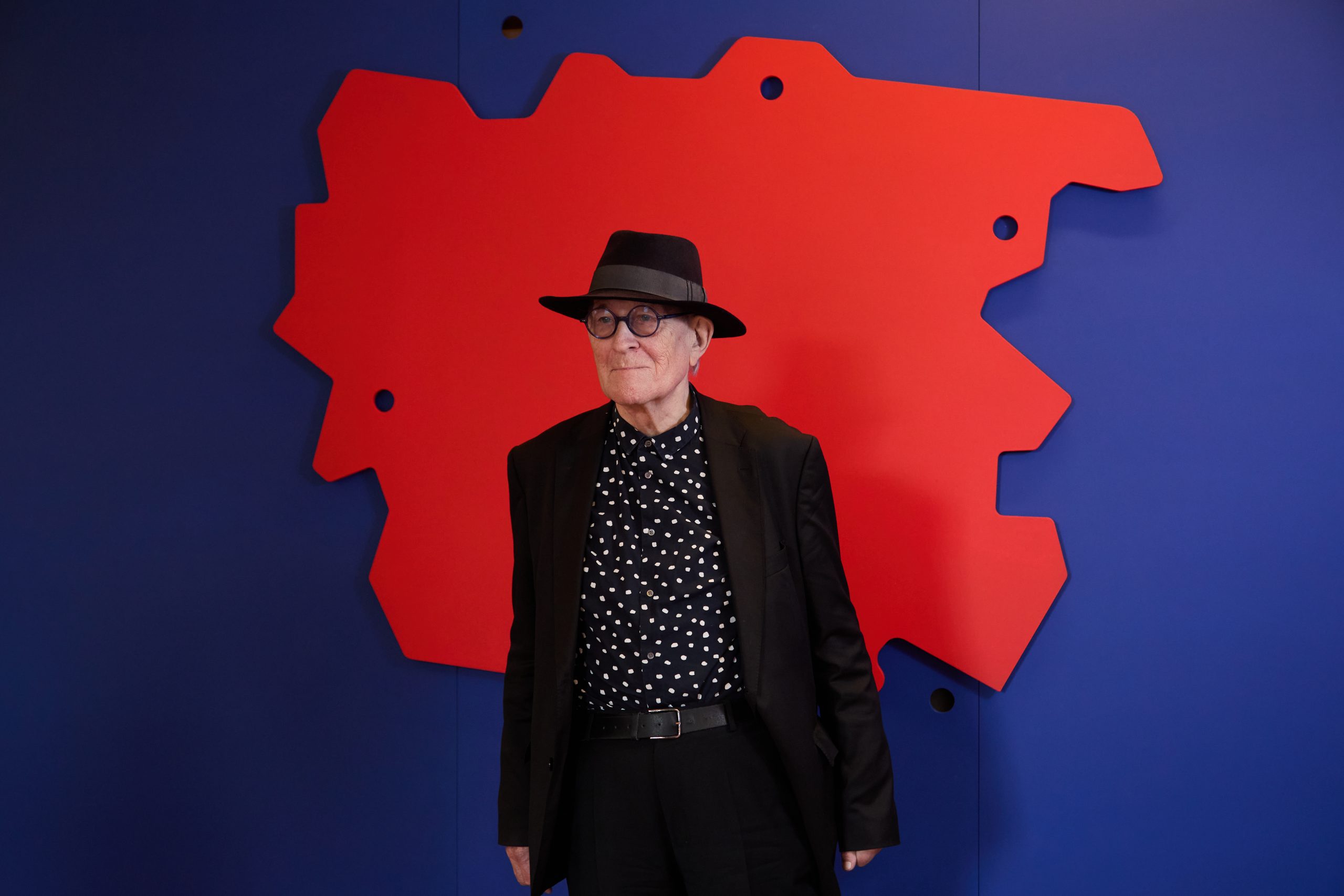 BA Architecture •
BA Architecture •Norwich University of the Arts presents the Peter Cook: Wonder Hub
Norwich University has launched the Peter Cook: Wonder Hub, a vibrant and interactive space for thinking, making, showcasing and debating the creative arts. -
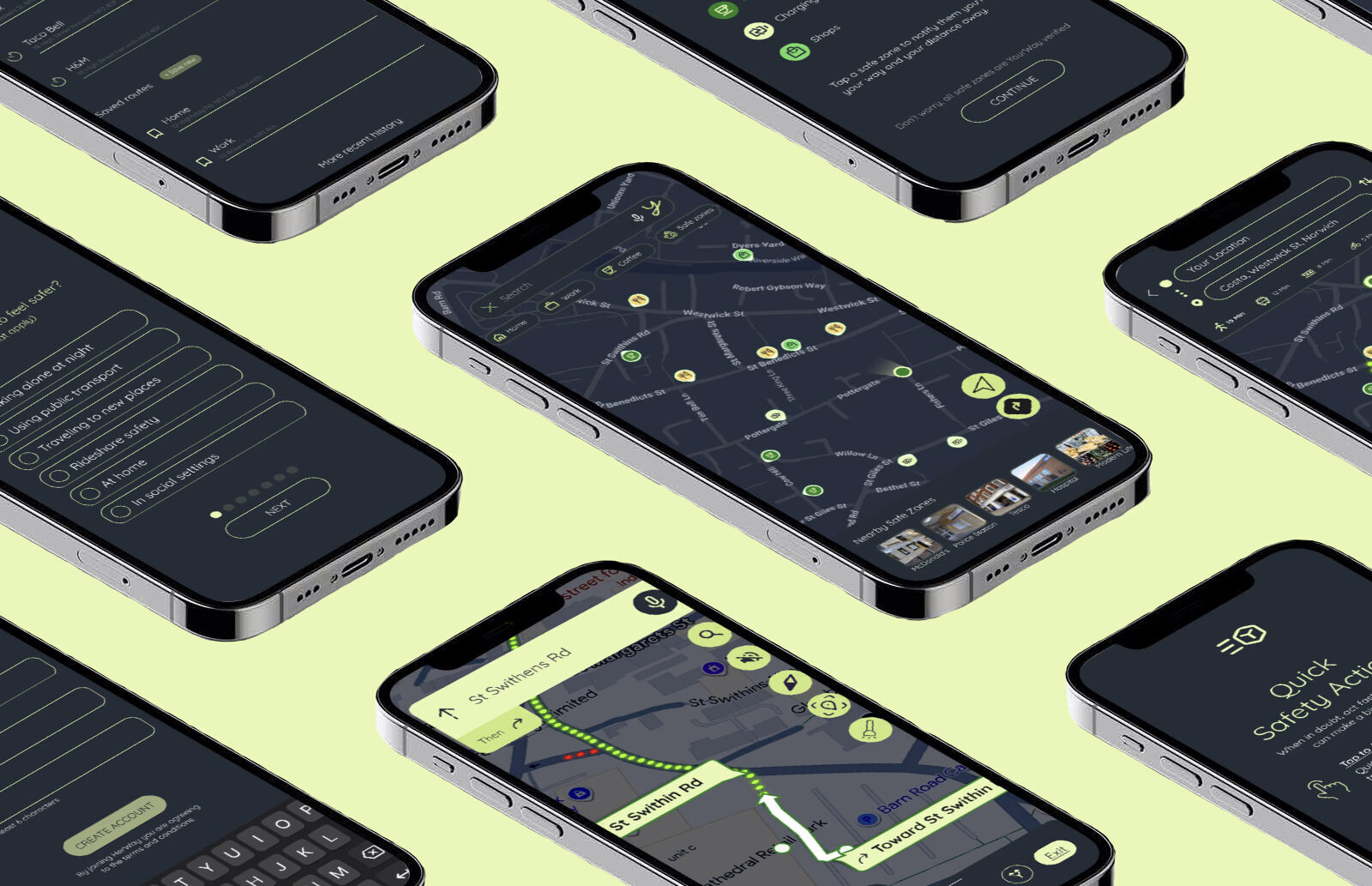 BA Graphic Communication •
BA Graphic Communication •Norwich students celebrate success at 2025 Creative Conscience Awards
Students from Norwich University of the Arts have been recognised across categories in this year’s awards, which showcase work focusing on social or environmental impact -
 BA Games Art and Design •
BA Games Art and Design •Norwich graduates recognised at TIGA UK Games Education Awards
Charlie O'Shea, BA (Hons) Games Art and Design has been named 'Outstanding TIGA Graduate of the Year: Designer'
Related courses
Discover our courses and take the first step towards unleashing your potential
-
Visit the Film and Moving Image Production BA (Hons) course page

- Filter courses by study level: Undergraduate
- Filter courses by duration: Full time
- Filter courses by start month: September
- Filter courses by subject: Film and Moving Image Production
Film and Moving Image Production BA (Hons)
Unleash your artistic vision by combining the art of creative storytelling with practical industry skills across various filmmaking mediums.
